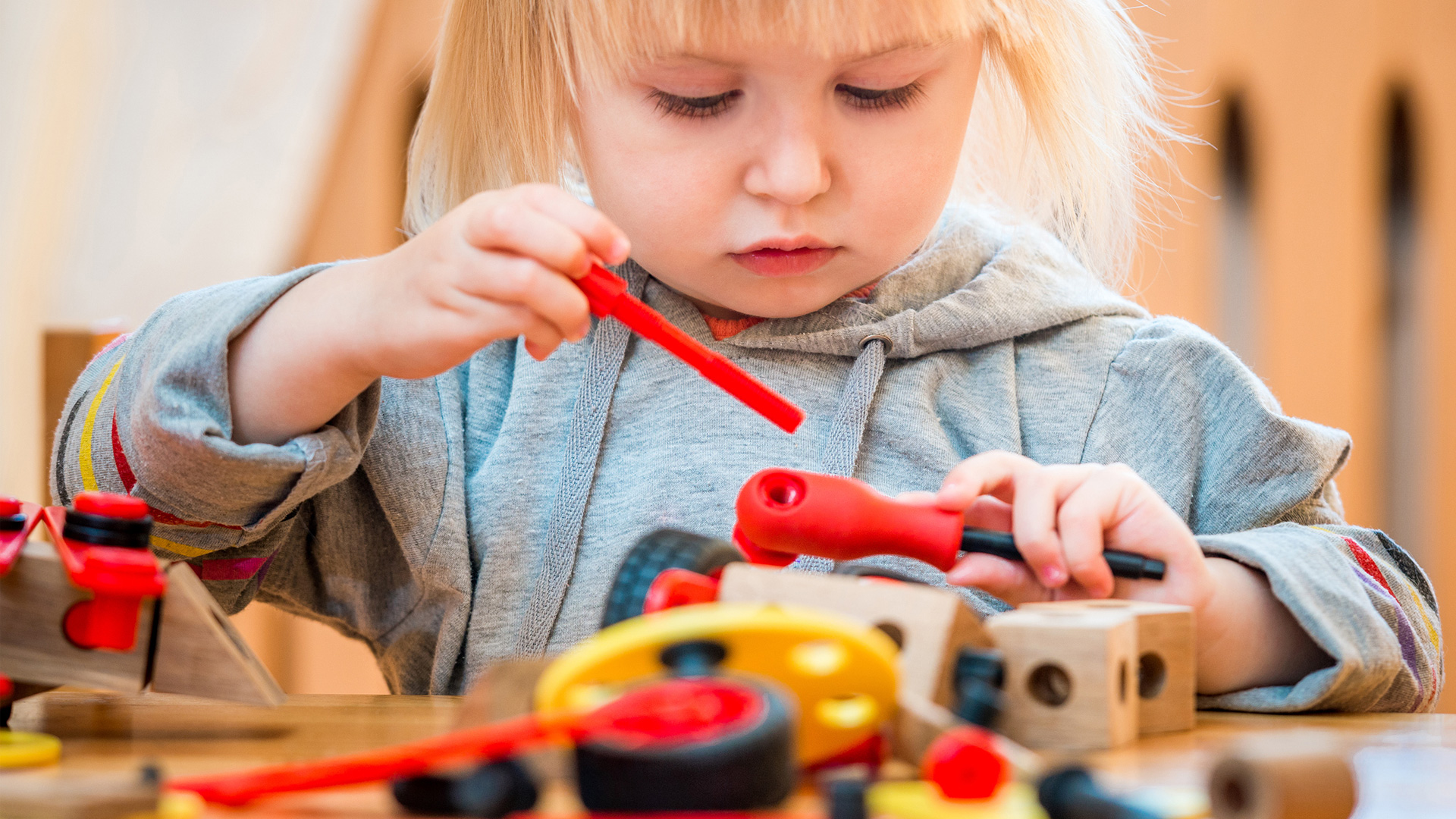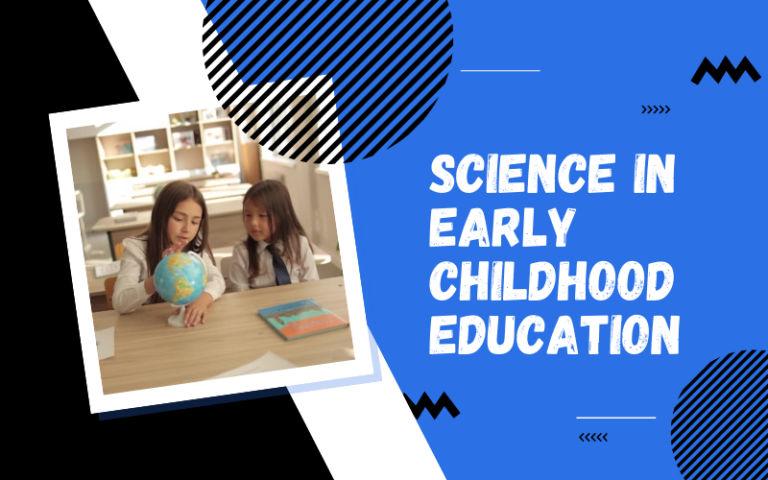When you think of a scientist, you probably picture some old guy in white coat sitting in a laboratory with test tubes, computers and all kinds of crazy equipment, and you might think that science is only for the men and women with PHDs and super intelligence. But what about your kids? Do we think of them as little scientists? Maybe we should, as many experts are advising that we should be helping our children learn scientific thinking since early childhood.
What is Science and How Does it Affect Kids?
For most of us who grew up with TVs, movies and video games, when we hear ‘science’, we think of super genius in secret underground lairs building rockets, giant robots, or some kind of fantastical doomsday device, or maybe we think of super intelligent researches working in labs to cure infectious diseases? We may think of great inventors like Edison, Tesla, or Bell and how their innovations changed the world.

But science doesn’t just happen in the laboratory. Science simply means the process by which we try to understand the world around us and how it works, and we use testing and evidence to prove our understandings correct or false.
Children are infinitely curious about the world around them, and they prod, poke, throw, shake, pull and push in order to learn just how everything works. What seems like play is in fact them investigating the universe, and things like gravity, resistance, shapes, actions and reactions, consequences, weight, depth, temperature and such all become known to them through playing. So, every child is, in essence, a little scientist on a journey of discovery.
From their earliest children are curious, investigative, and they want to find problems to solve. However, like all capacities children are born with, as parents, we need to them develop it. That’s why many experts are recommending toys and games for early childhood that help children develop their minds to be scientific, by which we mean to learn about the world and solve problems. So for the rest of this article, lets forget about Alfred Einstein and Stephen Hawkins and just think about science as ‘learning how the world works’.
How does Science work for Kids?
Now lets be clear on one thing. When we talk about science in early childhood education, we are not talking about kids learning the history of science or wrapping their minds around quantum physics or space travel. We mean the toys and games that teach children the fundamental building blocks of scientific thought that they will build on in later life. This happens when children are engaged in hands-on play which stimulates their minds and bodies at the same time.
For example, playing a simple set of building blocks will teach a child about causal relationships, gravity and balance, as they will see how blocks stack and fall to the ground. Toys can get more complex as the children grow older, (in this example they might move on to lego) but the basic principles remain the same.

Science toys and STEM toys
As active and concerned parents, we are sure you’ve heard of STEM toys before, but you might not know what it means. STEM stands for Science Technology Engineering and Maths toys. These are designed to give kids the skills and capacities to help with those things, and they range from very simple toys and games for toddlers all the way up to complicated science and electronics kits for older children and teens.

A good STEM toy or science toy should capture the imagination of a child, reward their curiosity, and stimulate them physically and mental. They should be fun but educational, and help build confidence in your child as they play and succeed. They may combine lights, sounds and different colors, and involve numbers, counting and shapes. They have many benefits, including
- Helping develop science and math
- Keep children curious and inquisitive about the world
- Encouraging problem solving
- Helping with motor control and hand to eye coordination
- Actively engaging their imagination.
- Inspires them to think about technology
Therefore, every parent should think about investing in some science toys or STEM games for their little ones, no matter what age they are. However, remember that a toy doesn’t have to be labelled as a STEM toy for it to be beneficial to your child developing scientific thought. Like be said before, building blocks and lego are some of the best toys for children to learn about sequencing, matching, building, and spatial planning and awareness. We are sure that many of the top engineers and architects of today must have started as the lego fans of yesterday.
Science should start and continue at home

Its an easy trap for parents to fall into to think that once their child is off to school the teachers will take care of things. However, the parents, especially the mom, are always going to be the first and most important teachers of the children in every aspect of their lives, and just as you will have to encourage your child to read, do their homework, study and exercise, you’ll need to helping them to keep developing their capacity for science.
One of the best ways to do that is to buy them science toys and gifts that are age appropriate, as they grow up. As their capacities and intelligence increase, they will need more difficult challenges and more complex problems to solve, and as a parent, you can help provide those. There are also many wonderful science books, websites and TV shows for them to watch. Also, don’t forget to keep science fun! Take them to museums and science centers. Go looking for fossils in caves and on the beach. Buy them an old FM radio to play about with. Keep them curious and interested in the world around them and you won’t go wrong.
Encourage, but don’t force

As parent, we are all a little guilty of trying to push our child down a certain path at some point or another, but we really need to find a balance between letting our children follow their own passions while not forcing them to follow in ours. Help your children develop their interests and encourage the to explore. That little lego master builder who built a whole lego city in his or her bedroom could be encouraged to look into architecture when the time comes. Or maybe your remote-control car fanatic will want to investigate mechanical engineering when they are older?
But, and trust me on this one, forcing your children down a certain path that they don’t want to walk isn’t usually going to end up well. Remember, arts, music can be just as engaging and scientific, and so can interests in physical activities and sports. Football, for example, has enough physical training, tactics and strategies to fill a thousand books, and there’s plenty of science in kicking a field goal. Painting or sculpture is just as much about physics and chemistry (mixing the materials and paints etc) as it is about expressing one’s feelings. And when it comes to music, there’s the whole science of vibrations making sounds, the mechanics of the instruments, and the dizzying world of music theory to get to grips with.

